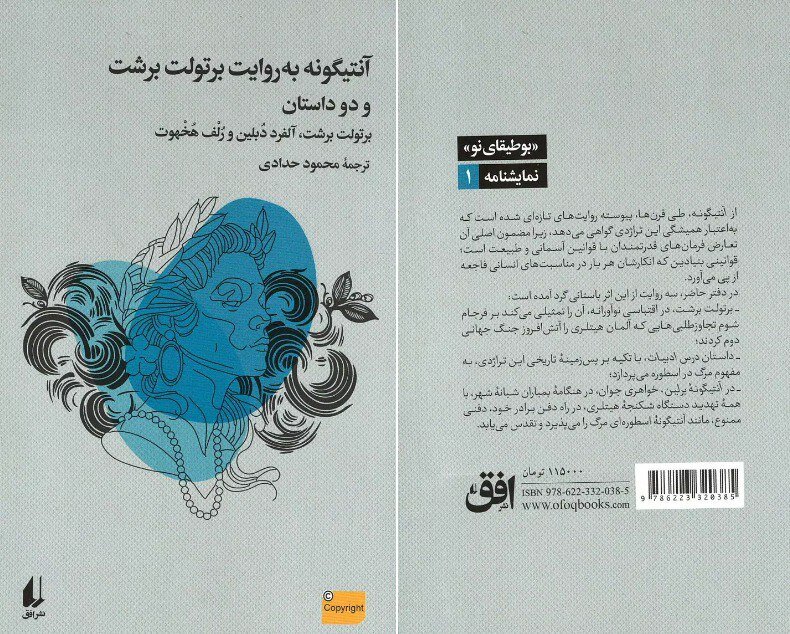Brecht’s “Antigone” published in Persian

TEHRAN-The book “Antigone,” an adaptation by the German dramatist Bertolt Brecht of Hölderlin's translation of Sophocles' tragedy, has been published in Persian by Ofoq Publications.
Titled “Antigone According to Bertolt Brecht and Two Stories,” the book also includes two stories by German authors Alfred Döblin and Rolf Hochhuth, all translated by Mahmoud Haddadi, Mehr reported.
In Greek mythology, Antigone is a Theban princess and a character in several ancient Greek tragedies. She is the daughter of Oedipus, king of Thebes, and either his mother Jocasta or, in another variation of the myth, Euryganeia.
Antigone appears in the three 5th-century BC tragic plays written by Sophocles, known collectively as the three Theban plays, being the protagonist of the eponymous tragedy “Antigone”. She makes a brief appearance at the end of “Aeschylus' Seven against Thebes,” while her story was also the subject of Euripides' now lost play with the same name.
However, Brecht’s play begins with a modern World War II scene in which two sisters discover that their brother, a soldier, has returned from the front. They feed him but it turns out that he is a deserter and he is lynched from the lamppost. This first scene is intended to draw the parallel between the death of Polynices, that marks the first and dramatically key event in Sophocles' Antigone, with that of the deserting soldier in World War II.
The other stories in the book by Döblin and Hochhuth also have a look at the tragedy of Antigone. Hochhuth’s story is about a young woman who like the mythical Antigone, accepts death and finds sanctity in the Nazi era. Döblin deals with the concept of death in myth, relying on the historical background of this tragedy.
SS/SAB
